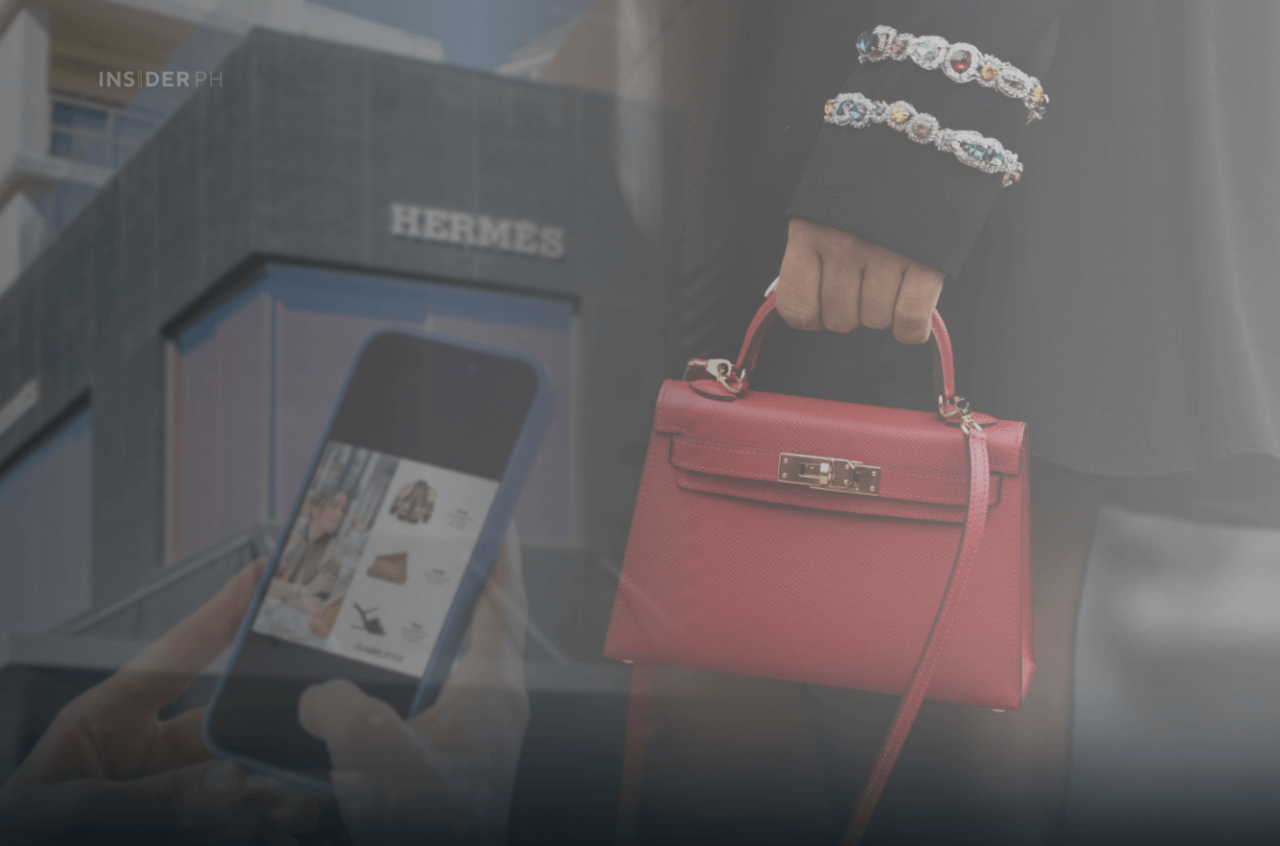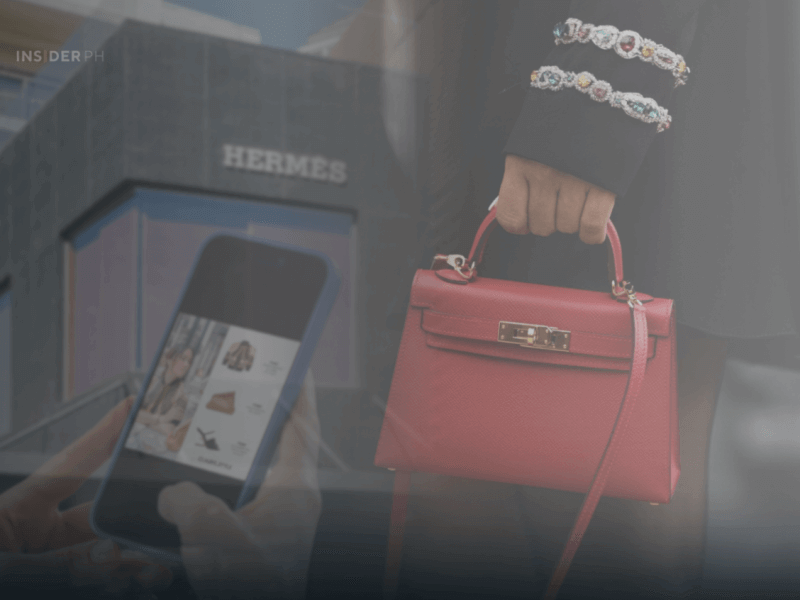

Now, a sweeping corruption probe is rattling the luxury market, putting sellers of designer goods on alert as the crackdown tests demand for pricey bags and accessories after nepo babies and political spouses were thrown into the spotlight for their flashy lifestyles.
To outsiders, this might suggest the segment is entering a temporary winter. But an established reseller in Bonifacio Global City, one of the country’s top business districts, confirmed what many have suspected: the country’s elites continue to spend, though with a noticeable shift in buying patterns.
The rich are still buying
“It’s not good right now but it’s still okay. There’s no bloodbath,” the reseller told InsiderPH.
“People are trying to be low key but it didn’t stop them from spending. They are spending, just more quietly,” he said, adding that the corruption probe coincided with the Ghost Month period, when sales typically slow.
InsiderPH reached out to ten established retailers, but only one agreed to speak on condition of anonymity.
Despite the industry’s reputation for glamour, its key players prefer to keep a low profile, letting their clients — and their seven- or eight-figure French bags and Swiss watches — do the talking.
This reseller confirmed that some clients include politicians or their close family, although this represents only a small part of the business, with most buyers being successful entrepreneurs, foreign visitors, and top corporate executives.
Habits changing for 'PEPs' and their friends
Has buying from so-called politically exposed persons, or PEPs, declined because of the scandal?
“Our PEP exposure is small, but those connected to them, contractors, suppliers, are the ones whose habits changed,” the reseller said.
“They now prefer entry-level luxury,” he added, referring to brands like Louis Vuitton and Gucci, which are more accessible compared to the country’s three most coveted labels — Hermès, Chanel, and Goyard, the last of which has no store in the Philippines.
The art of shopping during elections
Among the reasons buyers turn to resellers instead of official boutiques are the latter’s strict purchase requirements and the personalized, discreet service resellers provide.
“PEPs pay in cash and they’re very generous,” the insider said.
These transactions often take place in private rooms within the shop. In some cases, the cash bundles are still wrapped and labeled with the bank’s name and withdrawal date.
The insider added that these withdrawals typically happen well before an election, since rules tighten around large cash movements during the campaign period.
“It’s usually 6 to 12 months before election that the cash has been withdrawn, so by the time they spend it, it’s already clean,” the insider said.
Why buy from resellers?
Whatever you need to buy, they will find—as long as you have the budget.
Coveted bags such as Hermès Kellys and Birkins start at around P800,000, but prices climb steeply for rarer colors and more exotic leathers.
“The parallel market with us, the independent market, it’s around P1.4 to P1.9 million,” he explained.
The reason lies in the gamified nature of buying certain Hermès bags, which often requires customers to make multiple prior purchases before being allowed into the exclusive circle eligible to buy their desired pieces.
The French luxury house has never officially confirmed this policy.
But when buying from resellers, almost any bag or watch can be sourced in a few days, usually from overseas suppliers.
“Finding the right piece for clients takes time and effort,” the insider said.
Flashy lifestyles on mute
The scandal is also prompting some regular customers to keep a lower profile, wary of the backlash that has ensnared politically exposed persons for their public displays of wealth.
For now, austerity in the public eye is as much a matter of style as it is a form of political survival.
“Before, it used to be real-time shopping,” the insider said. “They would shop and post right away, just to humble brag. But now, they don’t.”
For this insider, the shift is only temporary, as the rich will always find an outlet for their spending.
“I’m optimistic eventually it’ll come back to where it was. I think it looks quiet because social media is quiet,” he said.

Miguel R. Camus has been a reporter covering various domestic business topics since 2009.

